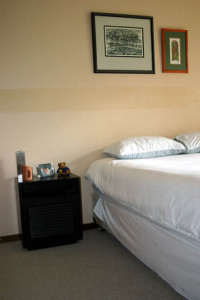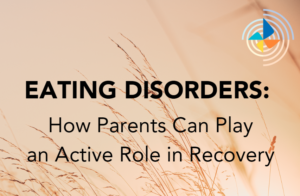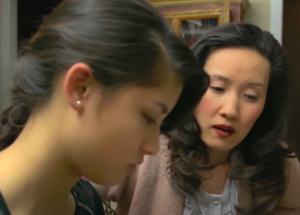Program Types
There are many types of programs for people with eating disorders. They usually have several kinds of professionals and offer different services and treatments. Different programs offer different levels of care. In most eating disorder programs, there are at least a few types of therapy. Some programs also include assessment and treatment for medical problems caused by eating disorders.
Usually, the clinical team will work with people (and their families) to determine which program would be the best fit based on their individual needs, symptoms and situation. Every person and family is different, and so what works for one may not work for another. People may find a good fit with the first approach they try, or they may go through a number of programs as they work their way towards recovery.
This section describes the different types of programs for individuals with eating disorders.
Outpatient Treatment
Most people do not stay in the hospital while they are treated for an eating disorder. They usually receive outpatient treatment at a clinic in their community, in a doctor’s office, or at a hospital. Treatment can be for the individual, group, or family.
The best treatment involves a team of specialists. The team may include two or more professionals, such as:
- a therapist or other mental health professional
- a general physician or pediatrician
- a dietitian
- a psychiatrist
There is good evidence that outpatient treatments can be very helpful in reducing or eliminating eating disorder symptoms. In fact, there are evidence-based treatments that have better outcomes than staying in hospital on an inpatient unit. One advantage of outpatient treatment is being able to stay connected and get more support from friends and family. Another advantage can be having the opportunity to practice new skills and strategies outside of sessions. Outpatient treatments are only appropriate as long as the individual is safe and medically stable.
Day Treatment/Intensive Outpatient
People who have day treatment or intensive outpatient treatment for eating disorders spend their days in a treatment program and go home to sleep. These programs typically run 3-5 days a week, for 3 to 8 hours a day. That means a person does not need to sleep in hospital while undergoing treatment, and may be able to keep up connections in their home community (e.g., engaging in some work, school). People who have stopped work or school may slowly return to the job or studies during their treatment.
A day treatment/intensive outpatient program usually offers a mix of:
- group therapy
- meal support
- individual therapy
- nutritional counselling
- therapeutic activities and outings
When people are spending several hours in a day treatment/intensive outpatient program for eating disorders, usually they have some meals and snacks during the program. The menu is carefully planned to meet the needs of each individual. The staff provide help and encouragement during meals and snacks, as it can be a very stressful time.
 Inpatient Treatment
Inpatient Treatment
If you sleep at the hospital during treatment for an eating disorder, it is called inpatient treatment. It is recommended when a person’s symptoms make it unsafe to be at home or when someone needs more intensive support to help them reach their goals.
When inpatient care is necessary, it is best if the person comes to the hospital willingly and agrees to treatment. But some people may not want help or see the need for help, even if they have a life-threatening condition or other safety concerns. In these cases, a psychiatrist or other medical doctor may need to admit them to the hospital for safety.
Inpatient treatment provide care and supervision 24 hours a day. They offer different types of therapeutic support, from individual counselling, to family therapy, to groups to help people learn skills for managing unhelpful thoughts and behaviors. Inpatients also have staff support for meals and snacks.
Residential Care
This kind of program is similar to inpatient treatment. It is for people who need more support than outpatient therapy can offer, but do not need the same medical care as inpatients. They may have symptoms that are very dangerous to their health, but a medical evaluation shows they are medically stable. Some residential care is available in hospital settings. Other residential care centers are in homes or on private properties.
People in residential care can take part in activities that help them learn about the triggers that contribute to eating disorder symptoms. They learn how to take responsibility for their own recovery. There are often several types of group therapy available. People in residential care are usually ready to work on recovering from their illness. It may be the best choice if you live too far away from a treatment center to get to day treatment. It is also an option if structured care at home is not possible, or if it has been difficult to make progress with other kinds of treatment.
Resource List
- Eating Disorders and Substance Use Programs in BC ( English )



